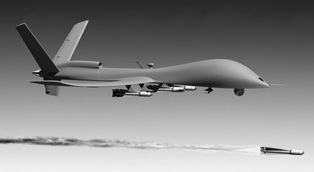Working as a Bertha Fellow with Shahzad Akbar at the Foundation for Fundamental Rights (FFR) in Pakistan has been both invigorating and fulfilling. The importance, for me, of using my law degree to focus on the issue of drone strikes in Pakistan, cannot be overstated. Since President Obama took office, he has launched more than 300 drone strikes at Pakistan’s tribal communities. Independent sources report that these strikes have killed as many as 3,549 people and that at least 197 of these were children. Those not killed outright by the drones’ missiles face the daily terror of not knowing whether the drone hovering overhead might suddenly decide to kill them. The constant, loud ‘humming sound’ from the circling drone terrifies the children and causes both adults and children psychological problems. The communities where these strikes are occurring literally live in daily terror that they might be next. The fear is so great that the children we interview now report they are scared to even go to school.

For me, it was important to do legal work that helped those who most lack a voice, and the victims of drone strikes are a perfect example of this. The daily suffering faced by the people in Waziristan is constantly being muted and not given the attention and moral outrage it deserves. There is still a blatant ignorance about the issue not only in the outside world, but also in Pakistan where a majority of the public either chooses to remain silent about the issue or else mistakenly believes that the drone strikes are actually killing only terrorists. In reality, a large number of women, children and the elderly are attacked on a daily basis by these drone strikes, which also target mosques, funerals and rescue processions.
Working with FFR as a Bertha Fellow has enabled me to learn how to use legal knowledge and research, and convert this into innovative methods of litigation that give voice to the victims of the U.S.’s covert drone war. These innovative methods are best exemplified by FFR’s recent Peshawar High Court victory.
In April 2012, FFR filed a case before the Peshawar High Court on behalf of the victims of the 17 March 2011 drone strike. The strike was particularly horrendous because it brutally targeted 50 tribal leaders who were hearing a dispute amongst local villagers about a chromite mine. The strike killed almost all of the elders present that day and was witnessed by dozens who had gathered that day to watch the jirga (local name for the community dispute resolution process).
Shahzad brought constitutional petition against the Pakistani government on behalf of the families of those killed. He argued that the Pakistani state had a constitutional responsibility to protect the right to life of those living in Pakistan’s tribal regions and thus a duty to stop the United States.
As the proceedings progressed, the Chief Justice of the Peshawar High Court demanded the government turn over detailed information on those who had been killed in drone strikes – a first step in making transparent a covert programme where the victims often remain nameless. He also demanded to know about the legality of these strikes under international law. I carried out extensive research and prepared six volumes of paper-books for the court which highlighted cases, treaties and conventions. All of it showed that the drone strikes in Pakistan were indeed a blatant violation of international law. The court then asked us further questions regarding the lack of caution used in drone strikes and the issue of compensation for the victims. Carrying out legal research, I drafted detailed answers and pleadings for the Court on these inquiries.
Our effort finally came to fruition on 11 May, 2013, as the Peshawar High Court through the Honourable Chief Justice Dost Muhammad Khan, in the case titled Foundation for Fundamental Rights vs. Federation of Pakistan & 4 others, for the first time explicitly and openly declared the USA led drone strikes as illegal and ordered the Government of Pakistan to seek international reparation on behalf of the victims. This was the first judgement of its kind and the first time a court in any part of the world had spoken out against these drone strikes. It was a small victory for the brave people of Waziristan who had come forward and let FFR litigate on their behalf.
While we are delighted with the judgement, there is still a long way to go to bring justice to the thousands of victims of drone strikes. A lot will depend on the implementation of the historic PHC judgement and making sure the Government of Pakistan follows the explicit directions of the Court in seeking justice for the drone victims from the UN, seeking compensation from the US and establishing these brutal acts as war crimes. In order to make sure the judgement is enforced, we plan not only to use the courts, but also other tools of advocacy, such as the media and the parliament. I’m still learning how to best use all of these tools to get the best results for victims of U.S. drone strikes, and I am extremely grateful to the Bertha Foundation for giving me this opportunity. Hopefully, I can learn from Shahzad Akbar and help FFR turn this judgement into results sooner rather than later. Stay tuned!
Mariam Kizilbash is a Bertha Fellow at the Foundation for Fundamental Rights in Pakistan
Article Tags: Drones / FFR / Human Rights / International Human Rights / movement lawyering / Pakistan / War